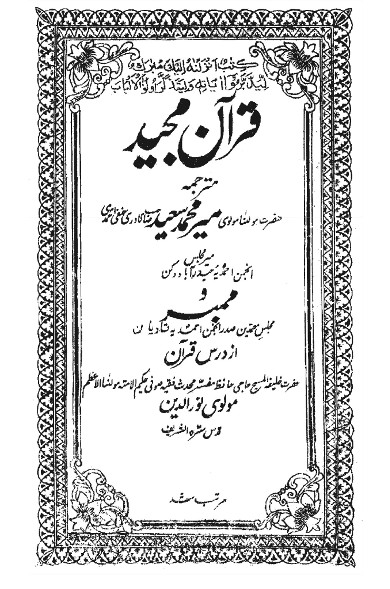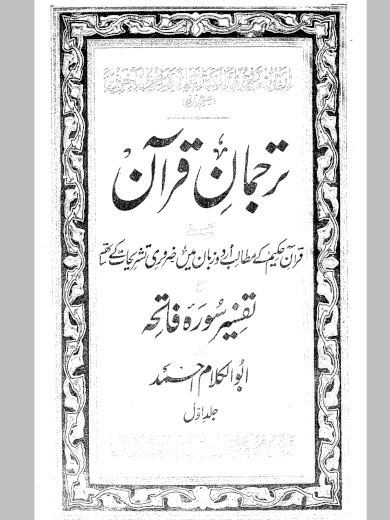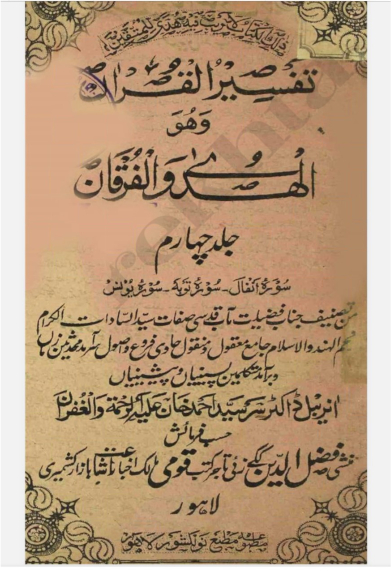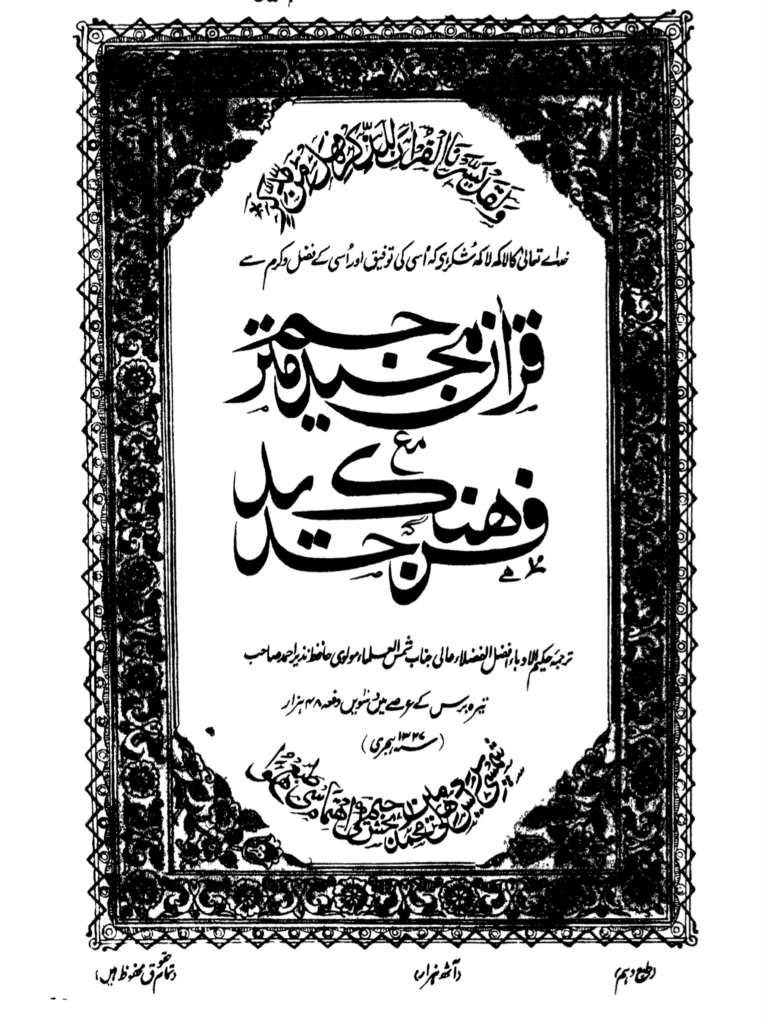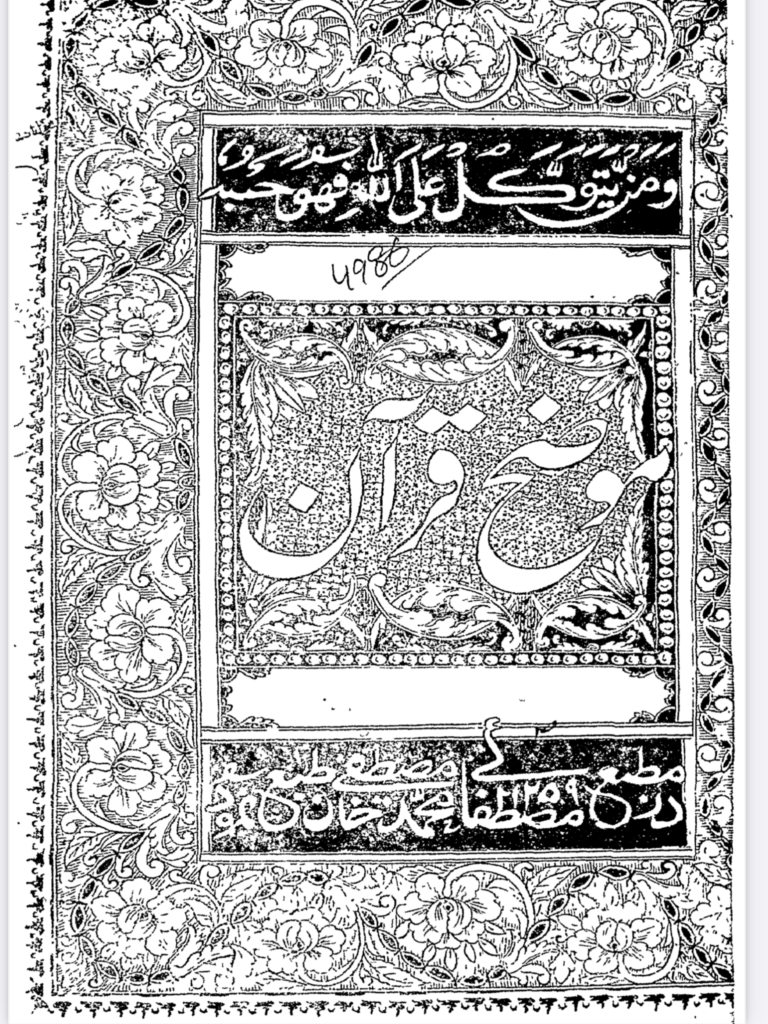Qur’an translation of the week #179: Ahmad Riza Khan’s Kanzul Iman
This week we will have a closer look at another influential Urdu Qurʾan translation, this time Ahmad Riza Khan’s (1856–1921) Kanzul Iman. Ahmad Riza Khan hailed from Bareilly in India, where he lived for his entire life. His ancestry can be traced back to the Pathans, specifically, it seems likely, to a tribe that migrated […]
Qur’an translation of the week #179: Ahmad Riza Khan’s Kanzul Iman Read More »


